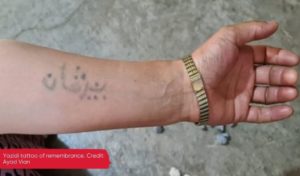This article by Mariz Tadros, explores the relationship between heritage practices and inclusive development through the exploration of the role of Coptic tattooing in shaping the experiences of Coptic men as migrant workers in Libya and as job-seekers in Egypt, and of Coptic women in Egypt.
Methods and approach
The methodology combined primary and secondary data and is informed by a grounded theory approach; 20 in-depth interviews with Coptic migrants who had worked in Libya and returned to Egypt is complemented by over 80 interviews with Coptic women and men across different generations living in southern Egypt who have imprinted religious tattoos.
Findings
The main findings are that the presence of a tattoo, an embodied form of religious heritage practice, contributed to exposing Coptic Egyptian migrant men to religious profiling and targeting, to the point of putting their lives in danger. The prohibition of Egyptian labour migration to Libya would not remove the susceptibility of these Coptic men to economic exclusion and discrimination since employers in Egypt also vetted them out in the labour force.
Policy implications
Policy-making can enable more “heritage-aware development” by undertaking situational and context analysis that takes into account the full spectrum of the sources and drivers of inequality and exclusion; by considering ways in which experiences and responses to heritage practices can shed light on exclusion and developing policies that take into account the immateriality of “otherization” and are designed to be purposely inclusive.



